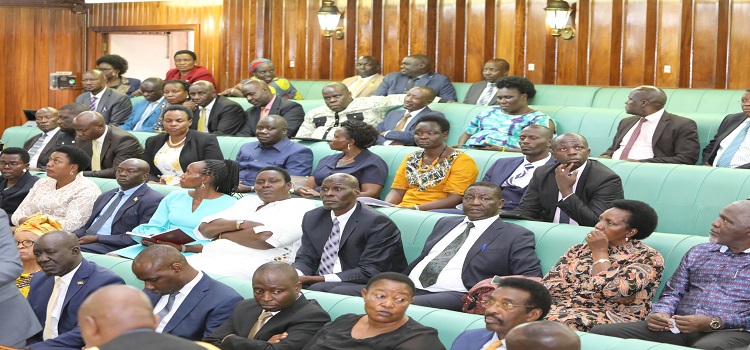Members of Parliament have asked for a revision of the import tax on cooking gas if government is to succeed in combating deforestation and charcoal burning.
Legislators said that currently, the cost of gas used in cooking is expensive and will continuously encourage forest degradation.
“Whereas there was a pronouncement by the government on cutting trees and charcoal burning, we are not ready to comply. The government should instead reduce tax on gas because the price is high,” said Hon. Geoffrey Macho (Ind., Busia Municipality) during the plenary sitting chaired by Speaker on Thursday 30 November 2023.
Macho explained that the price of 10 kilograms of Stabex gas in Kenya is Shs30,000, yet the same is sold at Shs80,000. He wondered how Ugandans who cannot afford such a price are expected to adhere to the ban on charcoal burning or deforestation.
Macho asked the government to come up with incentives, such as the provision of gas to poor communities as a means of conserving the environment.
Speaker Among guided that Parliament should utilize the forthcoming budgeting season to consider incentives that would render gas more affordable.
“As we embark on the budgeting process, we have said no cutting trees, no burning charcoal; I want to ask the Executive to consider reducing the cost of gas. In the new budget, we should have incentives for gas,” she said.
She urged legislators to take on role modeling for environmental conservation by actively participating in the tree-planting campaign.
“I want to hear that, for example, Hon. Macho has a forest, Mushemeza has planted trees, people should learn from us as leaders of this country,” Among said.
Legislators complained about the high costs of electricity, which they said should be the alternative source of cooking energy.
“Government should be deliberate in reducing the prices of electricity, we have done electrification, if there is a deliberate effort to reduce the cost, then people can use it for cooking,” said Hon. Solomon Silwany (NRM, Bukooli Central County).
Kagoma County MP, Moses Walyomu said the cost charged for connecting households to the power lines is high for ordinary Ugandans.
“How can you charge connection fees at Shs700,000 when some people cannot earn that amount in a year?” asked Walyomu.
Speaker asked the Ministry of Energy and Minerals Development to update Parliament on the rural electrification programme, saying many communities are not yet connected even though the country has generated large volumes of electricity.
“I have seen some electricity poles that were erected for over twenty years. People have resorted to using them as firewood. It would be prudent that the ministry comes here to update this House on when they intend to make the connections happen,” she said.

